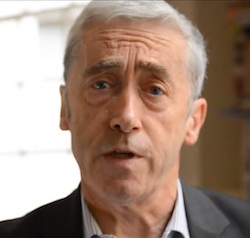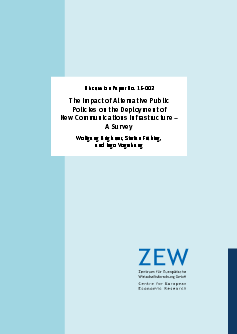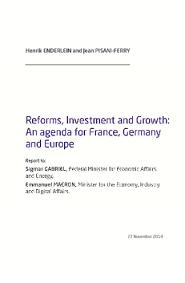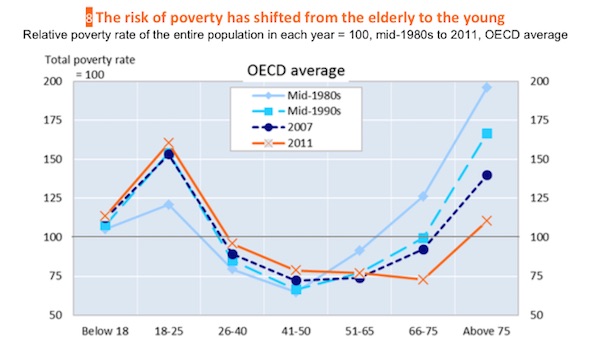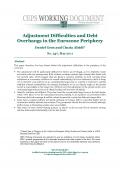Conversation by Martin Eiermann with Parag Khanna: “The fragmentation of power is irreversible”, The European Magazine, 16 January 2015. The end of the nation-state as we know it: Parag Khanna discusses the path towards global connectivity and why we have to shift from Western history to global history. The European: Mr. Khanna, especially in Europe, we’re witnessing a resurgence of regionalist or nationalist thinking that seems to cast doubt …Read More
Friday lay day – more snake oil from Brussels
Mitchell, B. (2015) “Friday lay day – more snake oil from Brussels“, Bill Mitchell Blog, 16 January. It’s my Friday lay day blog. I am in Sri Lanka at present and will have some reports about that over the next 14 odd days. I was amazed overnight by the comments from IMF boss Lagarde who made overt political statements in an upcoming election year by claiming that David Cameron …Read More
Europe Rediscovers Nationalism
“Europe Rediscovers Nationalism“, STRATFOR Global Intelligence, Analysis, 11 January. Analysis In his latest novel, French writer Michel Houellebecq presents a controversial situation: The year is 2022, and France has become an Islamicized country where universities have to teach the Koran, women have to wear the veil and polygamy is legal. The book, which created a stir in France, went on sale Jan. 7. That day, a group of terrorists …Read More
Quantitative easing in the Eurozone: It’s possible without fiscal transfers
De Grauwe, P. & Ji, Y. (2015) “Quantitative easing in the Eurozone: It’s possible without fiscal transfers“, VoxEU Organisation, 15 January. The ECB has been struggling to implement a programme of quantitative easing (QE) that would successfully target deflation. The main difficulty is political, stemming from opposition from German institutions. Their argument against is that a government bond buying programme by the ECB would mix fiscal and monetary policy. …Read More
The Impact of Alternative Public Policies on the Deployment of New Communications Infrastructure – A Survey
Briglauer, W., Frübing, S. & Vogelsang, I. (2015) “The Impact of Alternative Public Policies on the Deployment of New Communications Infrastructure – A Survey, Discussion Paper No. 15-003, Centre for European Economic Research (ZEW), January. Abstract Our survey reviews the theoretical and empirical literature on all alternative policies to promote the deployment of new fiber-based communications infrastructure. Since such investment is expected to induce substantial positive externalities, dynamic efficiency …Read More
Calling the eurozone’s bluff?
Brzeski, C. (2015) “Calling the eurozone’s bluff?“, EU Observer Opinion, 14 January. Next week’s events have the clear potential to plant the seeds for another eurozone crisis. Not an immediate one with sharp market turmoil, but rather a creeping one: the sneaking and growing awareness that the eurozone is far from being perfect. On 22 January, the European Central Bank (ECB) will plant the first seed. It will be …Read More
Reforms, Investment and Growth: An Agenda for France, Germany and Europe
Enderlein, H. & Pisani-Ferry, J. (2014) “Reforms, Investment and Growth: An Agenda for France, Germany and Europe“, Report to Sigmar Gabriel (Federal Minister for Economic Affairs and Energy) and Emmanuel Macron (Minister for the Economy, Industry and Digital Affairs, 27 November. INTRODUCTION Europe is falling into a stagnation trap: growth is barely noticeable; current inflation is dangerously low; almost stagnant nominal income makes the weight of public and private …Read More
While Europe debates a placebo the disaster deepens
Mitchell, B. (2015) “While Europe debates a placebo the disaster deepens“, Bill Mitchell Blog: Modern Monetary Theory… Macroeconomic Reality, 12 January. The youth are our future. The future is for our youth. Poverty used to be a problem of the aged as they left employment and entered retirement. Shorter life spans than now meant it was a relatively short-lived but deplorable state for people to end in. All that …Read More
Reinsurance of National Unemployment Benefit Schemes
Beblavý, Μ., Gros, D. & Maselli, I. (2015) “Reinsurance of National Unemployment Benefit Schemes“, Social welfare policies, CEPS Working Documents, Centre for European Policy Studies, 08 January. This study is a contribution to the debate around the creation of an unemployment insurance scheme for the EU/euro area by proposing an alternative mechanism to the Europeanisation of national insurance schemes. The authors make the case for a reinsurance mechanism and show that …Read More
Democracy and the threat of revolution: New evidence
Aidt, S. T., Leon, G., Franck, R. & Jensen, S. P. (2015) “Democracy and the threat of revolution: New evidence“, VoxEU Organisation, 08 January. Some theories suggest that the threat of revolution plays a pivotal role in democratisation. This column provides new evidence in support of this hypothesis. The authors use democratic transitions from Europe in the 19th century, Africa at the turn at the 20th century, and the …Read More






